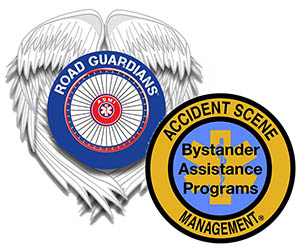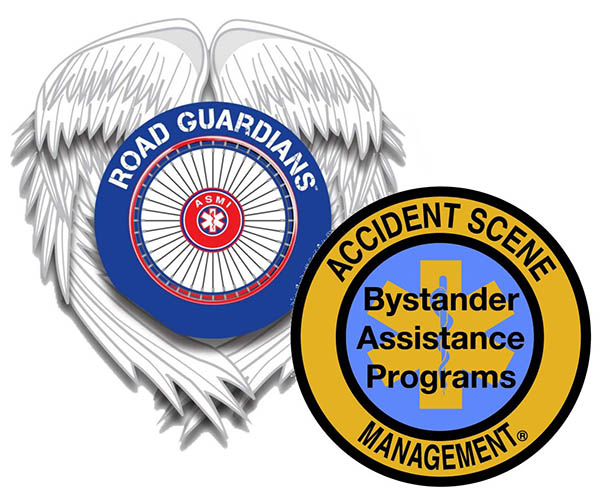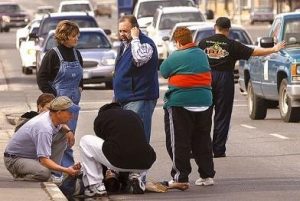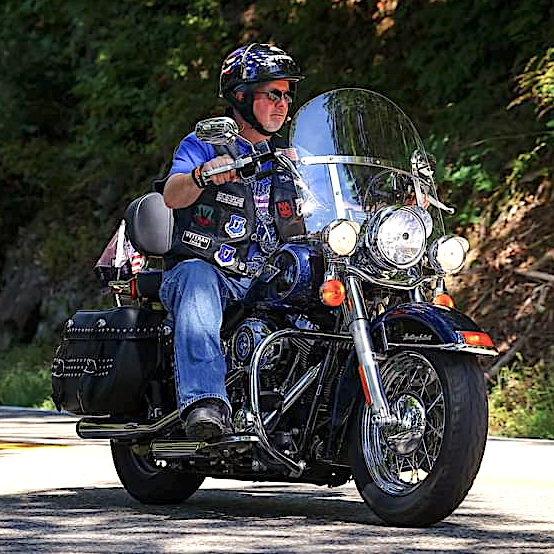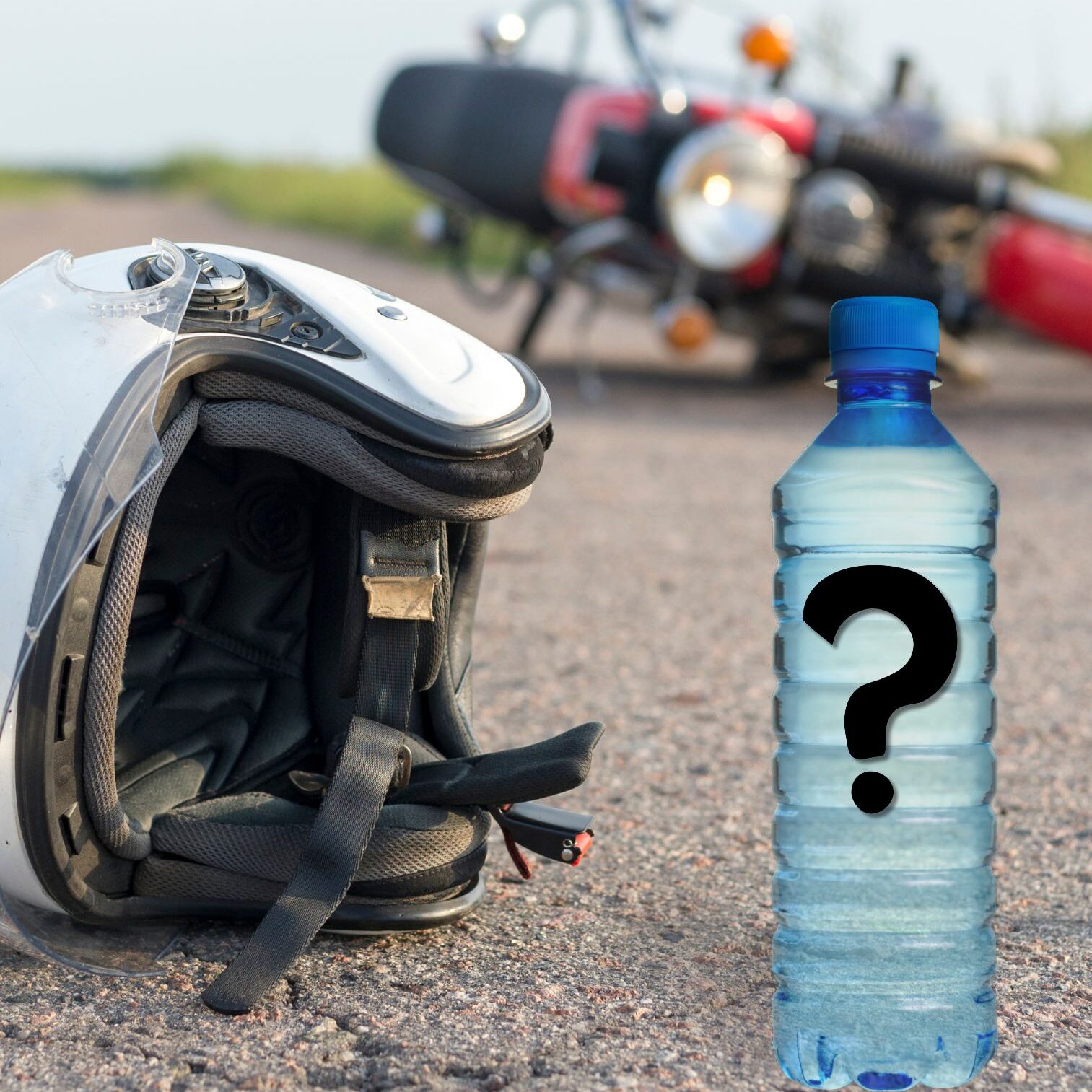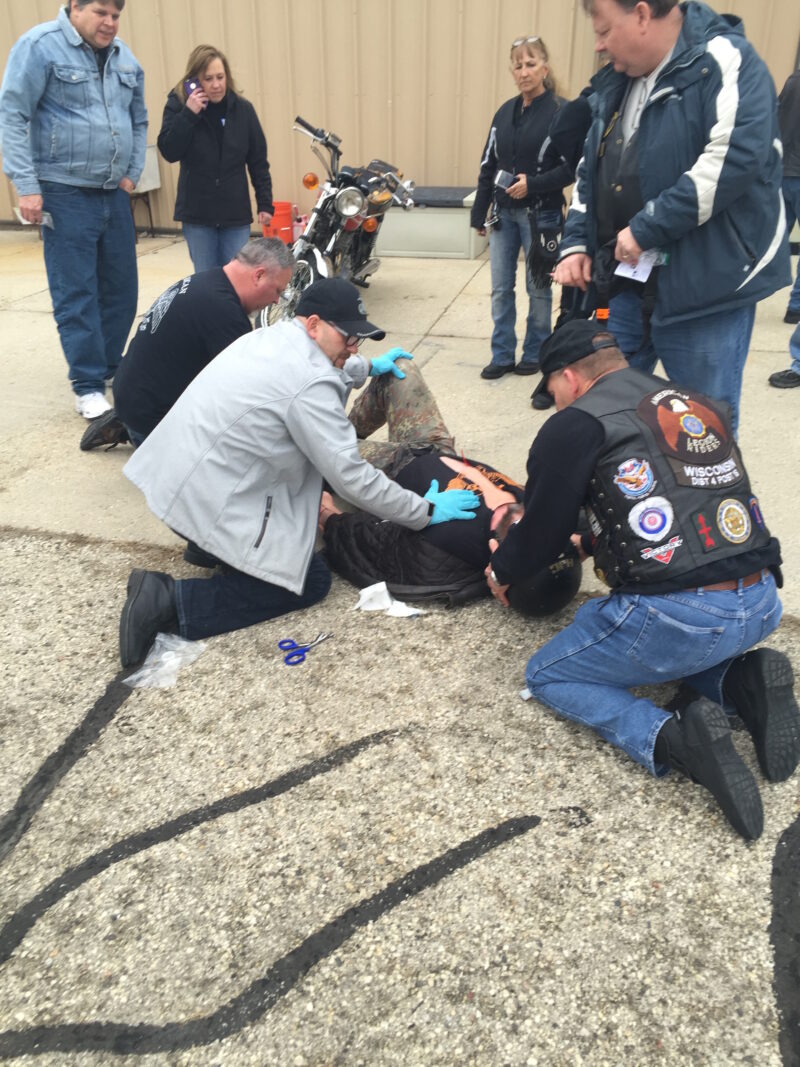
Good Samaritan Laws Protect Bystanders
By Vicki Sanfelipo
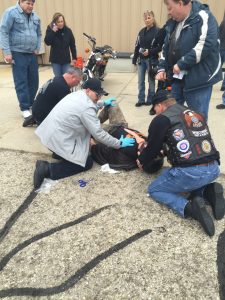 Good Samaritan laws offer legal protection to people who give reasonable assistance to those who are, or who they believe to be, injured, ill, in peril, or otherwise incapacitated
Good Samaritan laws offer legal protection to people who give reasonable assistance to those who are, or who they believe to be, injured, ill, in peril, or otherwise incapacitated
It was found in the 1970s that people were hesitant to stop and help a person in need because they were concerned about being named in a lawsuit. States moved quickly to pass laws to protect the bystander. Because there are 50 states with 50 laws, it is a good idea to possess a general understanding of what constitutes a bystander and how far a bystander should go to treat someone. This article will discuss Good Samaritan laws in general. The Road Guardians staff spent many hours putting together a list of links to each state’s Good Samaritan Law. If you would like to know more detail about the Good Samaritan law in your state or an area you will be traveling to, you can go to our website at www.RoadGuardians.org to take a look at our resources.
While there are some variations in Good Samaritan laws, you can count on ALL Good Samaritan laws to protect you when your intention is to help someone and not to hurt them. Rumors continue to exist today where someone will tell you that you can be held liable a person’s injuries simply because you touched them. They suggest that the fact you have touched a person suddenly transfers blame for their injury to you! When you hear that argument, it is typically because someone is either justifying their lack of comfort providing medical care or there is a business whose concern is that one of their clients or members might do something that could put their business at risk. If you were acting as a Good Samaritan and not being paid or accepting any compensation for your help, the law is clear. You cannot be held liable for the person’s injuries unless you were the person who caused the injury to start with. The only way that you could be held liable for a person’s injuries is if, through gross negligence, you caused more or new injuries.
That brings me to the topic of gross negligence. What is that anyway? Gross negligence is something that you do that causes an injury and is not anything that a reasonable person would do. For instance, let’s say that a person is having trouble breathing so you try to do a tracheotomy on them because you saw it on TV. As you performed the tracheotomy you severed the jugular artery in the neck and the person bled to death. That could be considered grossly negligent since you are not a trained professional who knows how to do a tracheotomy. Just because you saw something on TV does not make you an expert!
Duty to act: in Minnesota, the Good Samaritan law is very strong. Bystanders are required to do something. Even if just making a phone call, they have a duty to act. This is not so in most other states despite the fact that most people would want to help. In Illinois the Good Samaritan law says that the bystander can practice to their level of training. In that state training is encouraged because if you have more training you can be of more assistance.
In summary: Don’t let people scare you by telling you that you can be held liable for another person’s injuries by trying to help them and if a company tells you to do nothing when someone is hurt and simply call 9-1-1, consider doing business with someone else. They are only protecting themselves, not you or your friends.
To learn more about how to get trained to help a friend in need click HERE. If you can’t find a hands-on class, consider taking our ONLINE course.
